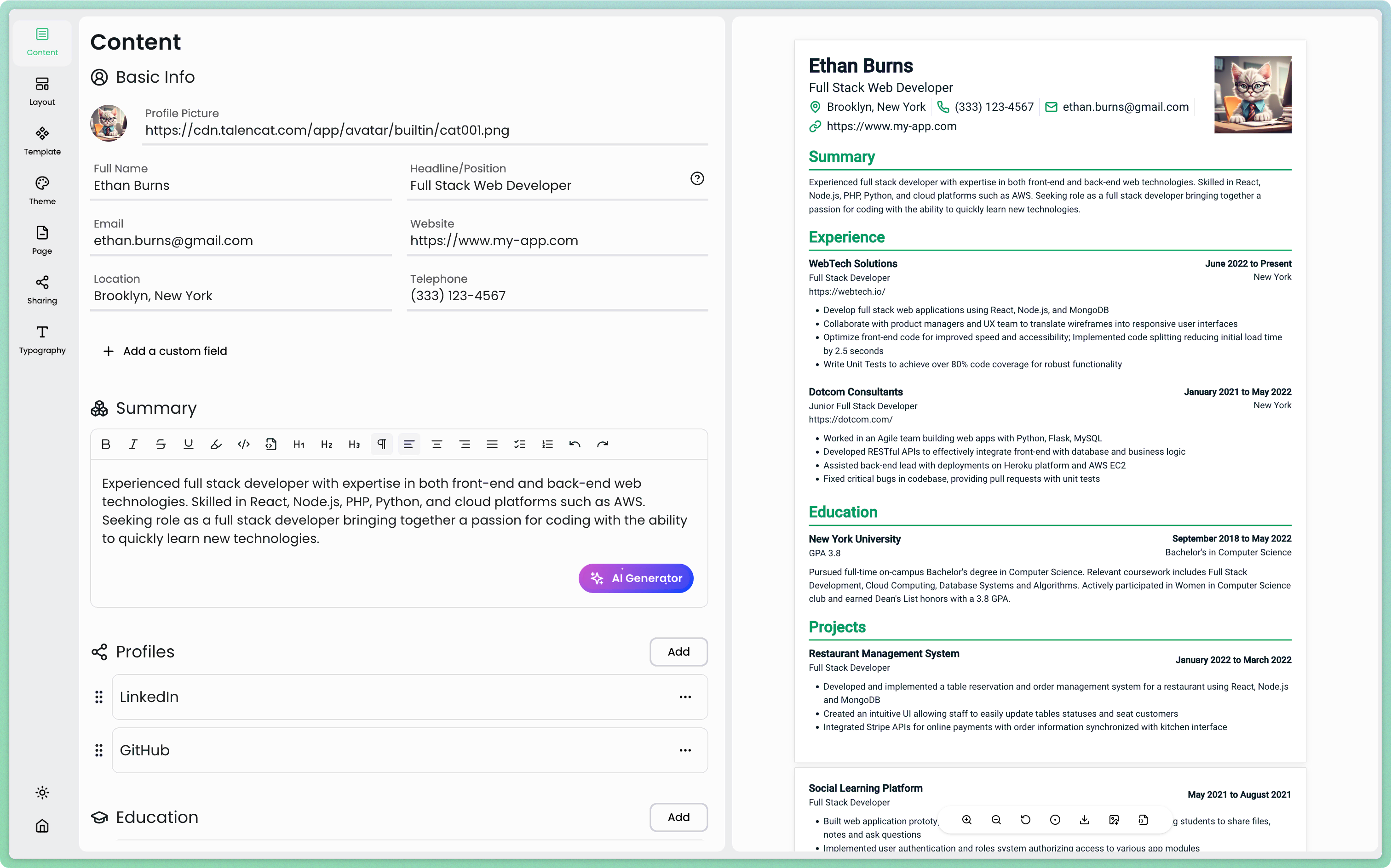In the world of nonprofit organizations, the role of a Development Director is crucial for driving fundraising efforts and ensuring the sustainability of the organization's mission. As such, the process of interviewing and selecting the right candidate for this position is of utmost importance. This comprehensive guide will explore the essential aspects of interviewing Development Directors, providing valuable insights for both hiring managers and candidates alike.
Introduction
Importance of Interviewing for Development Directors
The interview process for a Development Director is a critical step in finding the right individual to lead an organization's fundraising efforts. This role requires a unique blend of skills, including strategic thinking, relationship building, and financial acumen. A well-conducted interview can reveal not only a candidate's qualifications but also their potential to drive growth and foster meaningful connections with donors.
Overview of the Article Structure
This article will delve into various aspects of the interview process, including types of questions to ask, preparation strategies, and key skills to look for in candidates. We'll also explore best practices for conducting interviews and provide sample questions to help guide the conversation.
Types of Interview Questions for Development Directors
When interviewing candidates for a Development Director position, it's essential to cover a wide range of topics to gain a comprehensive understanding of their capabilities and fit for the role.
General Interview Questions
General questions help break the ice and provide insight into a candidate's overall approach to their work and career.
Experience and Background Questions
These questions delve into a candidate's professional history and relevant experiences in fundraising and development.
Fundraising and Development Strategies
Questions in this category assess a candidate's knowledge of various fundraising techniques and their ability to develop effective strategies.
Relationship Building and Donor Management
These questions explore a candidate's skills in cultivating and maintaining relationships with donors and stakeholders.
Leadership and Team Management
Leadership questions evaluate a candidate's ability to guide and motivate a development team towards achieving organizational goals.
Preparing for the Interview
Thorough preparation is key to conducting an effective interview for a Development Director position.
Researching the Organization
Before the interview, candidates should familiarize themselves with the organization's mission, values, and current fundraising initiatives. This knowledge demonstrates genuine interest and helps tailor responses to the organization's specific needs.
Understanding the Role of a Development Director
A clear understanding of the Development Director's responsibilities and expectations is crucial for both interviewers and candidates. This includes knowledge of fundraising best practices, donor relations, and strategic planning.
Common Challenges in Development Roles
Awareness of the typical challenges faced by Development Directors, such as meeting fundraising targets or navigating economic uncertainties, can help frame relevant questions and discussions during the interview.
Sample Interview Questions

Open-Ended Questions
Open-ended questions allow candidates to provide detailed responses and showcase their communication skills.
Sample Question: "Can you describe your approach to creating a comprehensive fundraising strategy?"
Expert Answer: "Certainly. My approach to creating a comprehensive fundrading strategy begins with a thorough assessment of the organization's current financial situation, goals, and donor base. I then conduct a SWOT analysis to identify strengths, weaknesses, opportunities, and threats. Based on this information, I develop a multi-faceted strategy that typically includes a mix of individual giving, corporate partnerships, grants, and special events. I also ensure that the strategy aligns with the organization's mission and values, and incorporates both short-term and long-term objectives. Throughout the process, I involve key stakeholders to ensure buy-in and collaboration. Finally, I establish clear metrics for success and implement regular review processes to adapt the strategy as needed."
Behavioral Questions
Behavioral questions help assess how candidates have handled specific situations in the past.
Sample Question: "Tell me about a time when you had to overcome a significant obstacle in a fundraising campaign. How did you handle it?"
Expert Answer: "I encountered a significant obstacle during a capital campaign for a new community center. Midway through the campaign, our lead donor unexpectedly withdrew their commitment due to financial difficulties. This put us at risk of missing our fundraising goal. To address this challenge, I immediately convened a meeting with our board and key stakeholders to reassess our strategy. We decided to intensify our outreach to other major donors and explore new funding sources. I personally reached out to several high-net-worth individuals in our network, sharing our vision and the impact of the project. Additionally, we launched a community-wide grassroots campaign to increase smaller donations. Through these efforts, we not only made up for the lost lead gift but exceeded our original goal by 15%. This experience taught me the importance of adaptability, quick thinking, and diversifying funding sources in development work."
Situational Questions
Situational questions present hypothetical scenarios to evaluate a candidate's problem-solving skills and decision-making process.
Sample Question: "How would you approach revitalizing a stagnant donor base?"
Expert Answer: "To revitalize a stagnant donor base, I would start by conducting a comprehensive analysis of our current donors, including their giving history, engagement levels, and demographics. This would help identify patterns and potential areas for growth. Next, I would implement a multi-pronged approach. First, I'd focus on re-engaging lapsed donors through personalized outreach, sharing impact stories, and potentially offering special 'welcome back' opportunities. Simultaneously, I'd work on deepening relationships with current active donors through increased communication, exclusive events, and opportunities for involvement beyond financial contributions. To attract new donors, I'd leverage data analytics to identify prospective donors with similar profiles to our most committed supporters and develop targeted acquisition campaigns. Additionally, I'd explore new fundraising channels, such as peer-to-peer campaigns or monthly giving programs, to diversify our donor base. Throughout this process, I'd ensure our messaging emphasizes the impact of donations and aligns with our organization's mission, as this often resonates strongly with both existing and potential donors."
Questions about Metrics and Evaluation
These questions assess a candidate's ability to measure and analyze fundraising performance.
Sample Question: "What key performance indicators do you use to measure the success of a fundraising campaign?"
Expert Answer: "When evaluating the success of a fundraising campaign, I focus on several key performance indicators. The most obvious is the total amount raised compared to our goal, but I also look deeper. I track the number of new donors acquired, the retention rate of existing donors, and the average gift size. The return on investment (ROI) is crucial - I calculate this by comparing the funds raised to the resources expended. I also monitor engagement metrics such as email open rates, event attendance, and social media interactions. For long-term sustainability, I pay attention to the growth in recurring donations and the progression of donors through the giving pyramid. Lastly, I believe it's important to measure the intangible impacts, such as increased awareness of our cause or new partnerships formed. By analyzing this comprehensive set of KPIs, we can gain a holistic view of a campaign's success and identify areas for improvement in future initiatives."
Mastering Development Director Interview Questions with TalenCat CV Maker
Preparing for a development director interview can be challenging, but with the right tools, you can significantly boost your chances of success. The AI interview tool TalenCat CV Maker offers a powerful feature to help you navigate potential interview questions specific to your development director role.
Here's how to use TalenCat CV Maker to prepare for your development director interview:
Step 1: Sign up or log in to TalenCat CV Maker. Either create a new resume tailored for the development director position or upload your existing one.
Step 2: Navigate to the "AI Assistant" section and select "Interview Assistant" from the left-side menu. This will initiate the AI's analysis of your development director resume.

Step 3: Click "Analyze Now" to generate a list of potential interview questions based on your resume content. These questions will be tailored to your experience and skills as a development director.

Step 4: Review the generated questions and prepare your responses. Pay special attention to questions that focus on your leadership skills, fundraising experience, and strategic planning abilities - all crucial for a development director role.
Step 5: Use the TalenCat CV Maker's editor to refine your resume based on the questions generated. This ensures your resume highlights the key points that interviewers are likely to ask about.

By leveraging TalenCat CV Maker's Interview Assistant, you'll be well-prepared to tackle tough questions in your development director interview. This preparation can give you the confidence and edge you need to stand out from other candidates.
Remember, the key to a successful interview lies in thorough preparation. With TalenCat CV Maker, you're not just creating a resume; you're strategically positioning yourself for success in your development director career.
Questions Development Directors Should Ask
Assessing Organizational Culture
Development Director candidates should ask questions about team dynamics, decision-making processes, and how philanthropy is valued within the organization. Understanding the organizational culture helps determine if there's alignment with personal working styles and values. Key questions might include the board's involvement in fundraising, how success is celebrated, and how different departments collaborate on development initiatives.
Understanding Expectations and Goals
Candidates should inquire about specific fundraising targets, growth projections, and how success will be measured in the role. This includes understanding the organization's current funding mix, major donor relationships, and any specific campaigns or initiatives planned for the future. It's also important to discuss the organization's strategic plan and how development goals align with broader organizational objectives.
Clarifying Resources and Support
Development Directors should ask about available resources, including budget allocation for fundraising activities, database systems, staff support, and professional development opportunities. Understanding the technology infrastructure, marketing support, and access to board members and key stakeholders is crucial for success in the role.
Key Skills and Qualities to Look For
Communication Skills
Exceptional verbal and written communication skills are essential for a Development Director. This includes the ability to craft compelling narratives, make persuasive presentations, and communicate effectively with diverse stakeholders. Strong listening skills and the ability to translate complex information into clear, donor-friendly messages are crucial.
Strategic Thinking
Development Directors must demonstrate strategic thinking through their ability to analyze data, identify opportunities, and create comprehensive fundraising plans. This includes understanding market trends, donor demographics, and the ability to align fundraising strategies with organizational goals. They should show capacity for both short-term tactical planning and long-term strategic vision.
Adaptability and Problem-Solving
The ability to pivot strategies, handle unexpected challenges, and find creative solutions is crucial. Development Directors should demonstrate flexibility in approach, resilience in facing setbacks, and innovative thinking in overcoming obstacles. Experience in managing change and adapting to various economic conditions is valuable.
Passion for Philanthropy
A genuine commitment to philanthropic work and the organization's mission is essential. This includes understanding current trends in philanthropy, demonstrating authentic enthusiasm for the cause, and showing a track record of building meaningful relationships in the nonprofit sector.
Best Practices for Conducting Interviews
Structuring the Interview Process
Create a standardized interview process that includes multiple rounds and various stakeholders. This might include initial screening, panel interviews, presentations, and meetings with key team members. Develop a scoring rubric to evaluate candidates consistently and fairly across all interactions.
Engaging Candidates Effectively
Create a welcoming atmosphere that allows candidates to showcase their best qualities. Use active listening techniques, provide clear information about the role and organization, and allow time for meaningful dialogue. Consider incorporating role-playing exercises or practical scenarios to assess skills in action.
Evaluating Responses
Develop a systematic approach to evaluating candidates based on predetermined criteria. Consider both technical competencies and soft skills, cultural fit, and leadership potential. Document responses thoroughly and gather feedback from all interviewers before making decisions.
Conclusion
Recap of Key Points
The selection of a Development Director requires careful attention to both technical skills and personal qualities. Success in this role depends on a combination of strategic thinking, strong communication abilities, adaptability, and genuine passion for the mission. A well-structured interview process that thoroughly evaluates these aspects is crucial for making the right hiring decision.
Encouragement for Future Interviews
Organizations should approach the interview process as an opportunity to not only assess candidates but also showcase their own values and mission. Taking time to prepare thoroughly and implement these best practices will lead to more successful hiring outcomes and stronger development programs.




